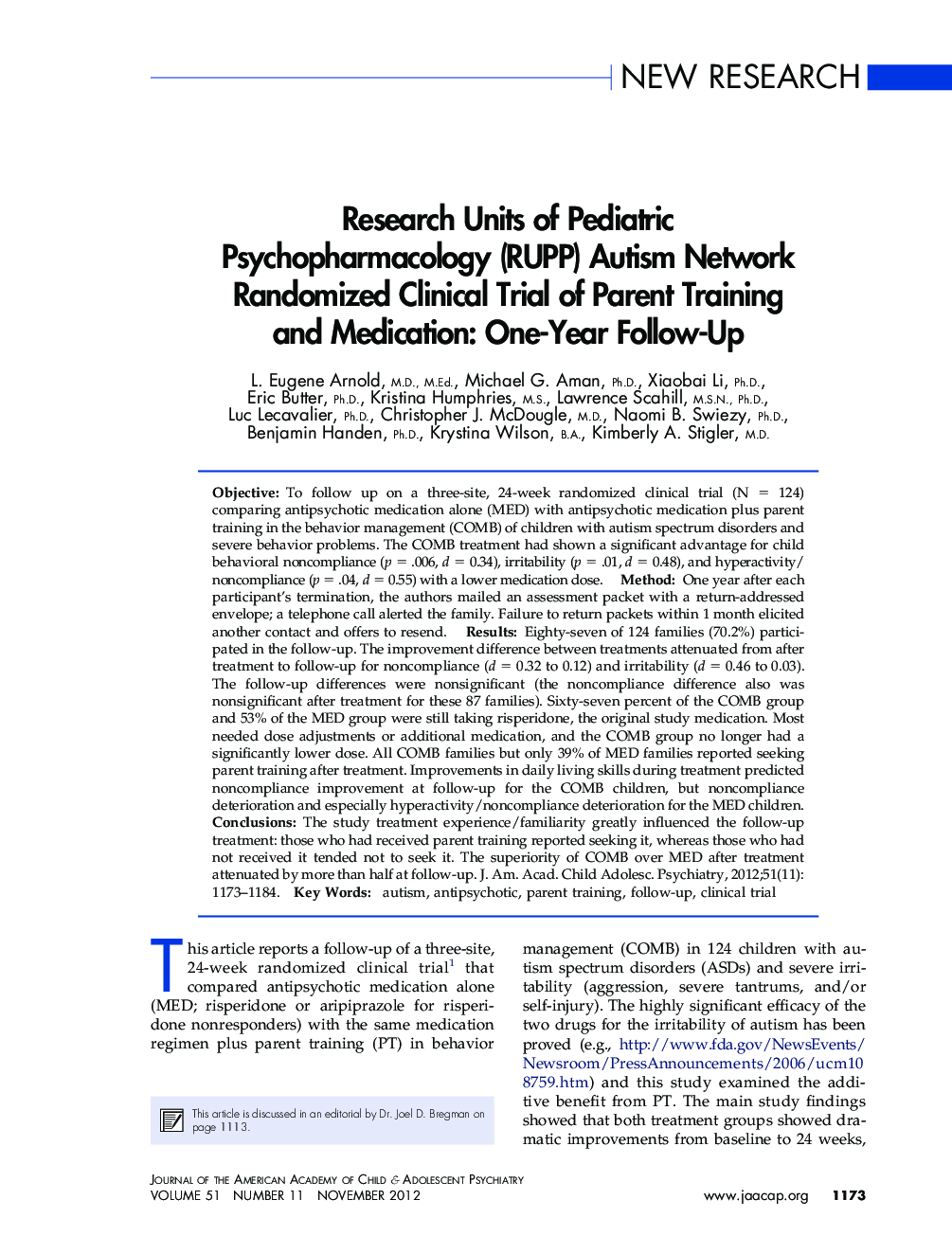| کد مقاله | کد نشریه | سال انتشار | مقاله انگلیسی | نسخه تمام متن |
|---|---|---|---|---|
| 324208 | 1432970 | 2012 | 12 صفحه PDF | دانلود رایگان |

ObjectiveTo follow up on a three-site, 24-week randomized clinical trial (N = 124) comparing antipsychotic medication alone (MED) with antipsychotic medication plus parent training in the behavior management (COMB) of children with autism spectrum disorders and severe behavior problems. The COMB treatment had shown a significant advantage for child behavioral noncompliance (p = .006, d = 0.34), irritability (p = .01, d = 0.48), and hyperactivity/noncompliance (p = .04, d = 0.55) with a lower medication dose.MethodOne year after each participant's termination, the authors mailed an assessment packet with a return-addressed envelope; a telephone call alerted the family. Failure to return packets within 1 month elicited another contact and offers to resend.ResultsEighty-seven of 124 families (70.2%) participated in the follow-up. The improvement difference between treatments attenuated from after treatment to follow-up for noncompliance (d = 0.32 to 0.12) and irritability (d = 0.46 to 0.03). The follow-up differences were nonsignificant (the noncompliance difference also was nonsignificant after treatment for these 87 families). Sixty-seven percent of the COMB group and 53% of the MED group were still taking risperidone, the original study medication. Most needed dose adjustments or additional medication, and the COMB group no longer had a significantly lower dose. All COMB families but only 39% of MED families reported seeking parent training after treatment. Improvements in daily living skills during treatment predicted noncompliance improvement at follow-up for the COMB children, but noncompliance deterioration and especially hyperactivity/noncompliance deterioration for the MED children.ConclusionsThe study treatment experience/familiarity greatly influenced the follow-up treatment: those who had received parent training reported seeking it, whereas those who had not received it tended not to seek it. The superiority of COMB over MED after treatment attenuated by more than half at follow-up.
Journal: Journal of the American Academy of Child & Adolescent Psychiatry - Volume 51, Issue 11, November 2012, Pages 1173–1184